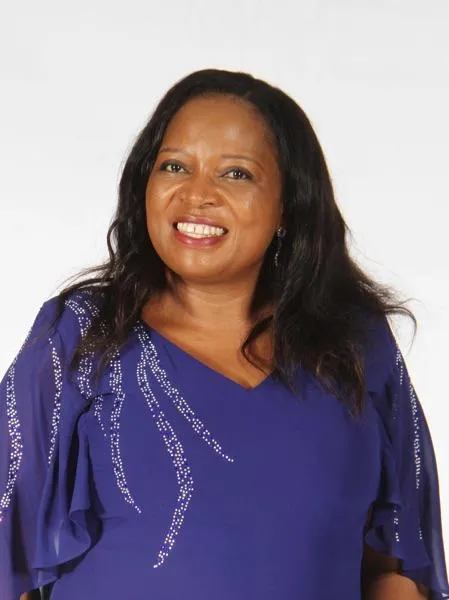SEDFA and DSBD face performance scrutiny amid merger challenges
Small Businesses

Deputy Minister of Small Business Development Jane Sithole acknowledged improvements but admitted critical gaps remained.
Image: Supplied
THE Department of Small Business Development (DSBD) and its newly merged entity, the Small Enterprise Development and Finance Agency (Sedfa), presented their fourth-quarter performance reports to Parliament recently, revealing both progress and persistent challenges in supporting small businesses and cooperatives.
While DSBD reported an 80% achievement rate for the fourth quarter and an 88% annual performance, up from 85% the previous year, legislators grilled officials over underperformance in key programmes, delayed disbursements, and the slow stabilisation of Sedfa following its October 2024 merger.
Deputy Minister of Small Business Development Jane Sithole, standing in for Minister Stella Ndabeni-Abrahams (who was attending a Cabinet meeting), acknowledged improvements but admitted critical gaps remained.
“We have made strides, but challenges persist,” Sithole said. “Programme 3, the Integrated Cooperatives and Microfinance Programme, only achieved 50% of its targets. Sedfa also struggled with access to finance for MSMEs and cooperatives, hitting just 63% of its fourth quarter target.”
However, she highlighted successes, including Sedfa’s disbursement of “R748.5 million” to 32 015 MSMEs and cooperatives in the fourth quarter, surpassing its target of 23 527. Annually, the agency supported 165 068 enterprises, far exceeding expectations.
Sedfa, formed by merging the Small Enterprise Finance Agency (Sefa), Small Enterprise Development Agency (Seda), and Cooperative Banks Development Agency (CBDA), is still grappling with integration.
Acting chairperson Nonzuzo Makanda admitted: “System integration remains a challenge. We haven’t met desired turnaround times, but corrective measures are underway.”
Acting chief executive Nkosikhona Mbatha revealed that executive positions — including CEO, CFO, and CIO — were still filled on an acting basis due to a previous recruitment embargo. Though lifted, Cabinet concurrence is pending. “We cannot continue reporting back without fully capacitating our human resources,” Makanda said.
A contentious point was Sedfa’s R748.5m disbursement in the fourth quarter — 173% of its target — yet MPs questioned whether this translated into tangible job creation. DA MP Henri Kruger said: “If you fund an electrician starting a business, that’s one job created. Are you counting the entrepreneur, or only additional hires?”
Mbatha clarified that active business owners are counted, but directors not involved in operations are excluded. Meanwhile, EFF MP Naledi Mathulelwa slammed delays in the Asset Assist Programme, where 1 247 approved applicants from December 2024 were still waiting for payouts by May 2025.
“People were told they’d get generators, but nothing has arrived. This causes psychological distress,” said committee chairperson Cynthia Dikgale, demanding urgent distribution.
DSBD director-general Thulisile Manzini reported successes, including: — 100% on-time payments to suppliers (R22.5m across 3 097 invoices).— 54.3% female representation in senior management, exceeding the 50% target.- 60 SMMEs exposed to global markets, surpassing the 50-target.
MPs also questioned DSBD’s red tape reduction efforts, with Bosa’s Nomsa Hlazo-Webster demanding evidence of faster municipal licensing.
Mathulelwa blasted DSBD’s silence on cannabis policy, citing the Health Minister’s March 2025 ban on edibles: “We’re repeating mining’s mistakes, exporting raw cannabis while killing local beneficiation. Where is DSBD’s plan for small-scale farmers?”
The R500 million Spaza Shop Support Fund, launched without a detailed committee briefing, sparked outrage. “Only 6% of spaza shops are South African-owned. Where’s the breakdown by province?” Mathulelwa asked. Manzini promised a full report by May 21.
DSBD CFO Semphete Oosterwyk confirmed a R7m overspend, partly due to early vehicle purchases for the Deputy Minister.
Meanwhile, Sedfa’s 64.1% portfolio risk, inherited from pre-merger bad loans, raised alarms. Makanda assured tighter due diligence under the new model.
Despite frustrations, MPs acknowledged wins like Tano Melon Sauces and New Choice Dishwashing Liquid — black-owned firms now stocked in major retailers.
The Deputy Minister pledged accountability, while Sedfa vowed to finalise executive appointments and improve disbursement speeds. “We’re a work in progress,” Mbatha conceded. “But we’re committed to delivering.”
As small businesses await faster support, the pressure is on DSBD and Sedfa to turn promises into results.